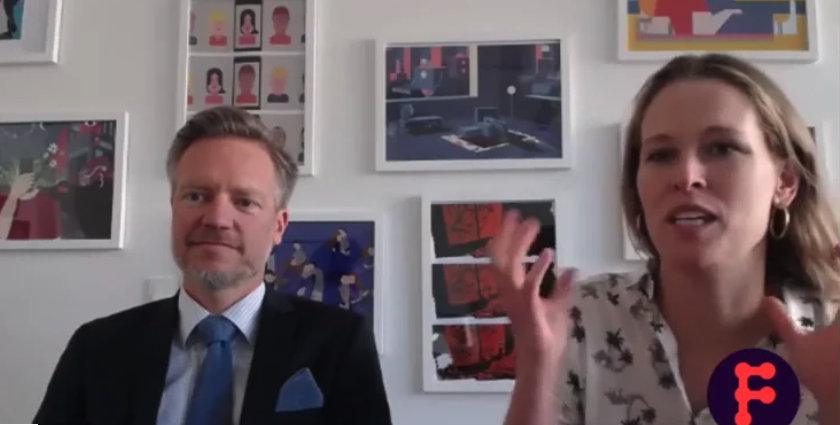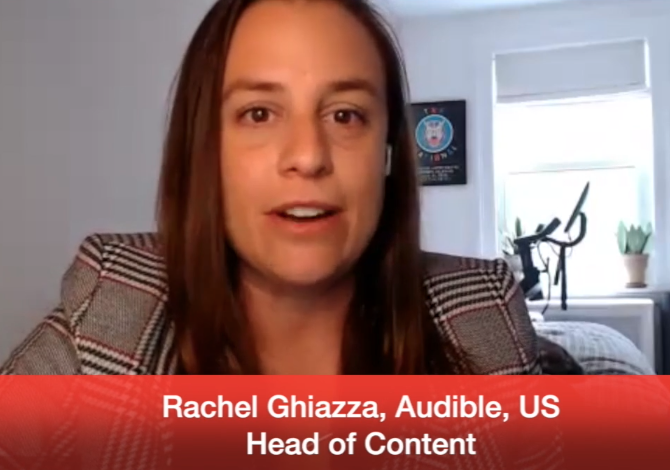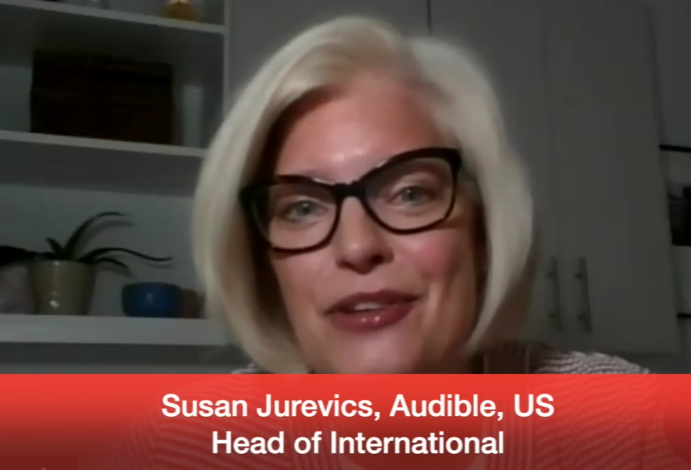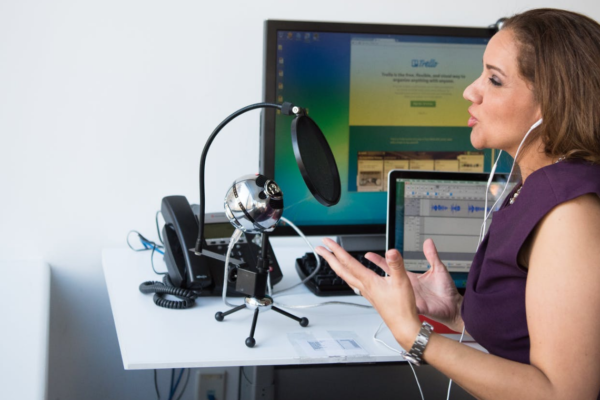Lessons on podcast content and how to build revenue
Audio is definitely having its moment and, when we gathered some of the world’s leading podcast and storytelling together, the passion for the revived medium was palpable.
During two insightful FIPP Congress sessions, Tav Klitgaard, CEO of the Danish media company Zetland, with Zetland’s co-founder and editor, Lea Korsgaard; and Audible USA’s Susan Jurevics, Head of International, with Rachel Ghiazza, Head of Content discussed, what everyone agrees, is a really exciting time in audio – “arguably, the world’s oldest entertainment medium,” as Rachel says. Susan, too, sees the current era as “a real Renaissance for audio”.
Charlotte Ricca, FIPP Insider podcast’s co-host began the session by explaining that if reader engagement is “the holy grail of publishing”, Zetland (“dedicated to digital journalism as a force of good”) have found a unique way to connect with that audience – by publishing their articles as audio, for paying members. Podcasts are massive in Denmark, and the Danes have a tradition of being early-adopters of technology – and podcasting.
Since 2016, Zetland now have more than 17,000 paying members – many of whom are actively involved in the editorial process and feel a real sense of ownership of Zetland; so much so that in the summer of 2019 Zetland ambassadors convinced more than 2,000 new members to sign up in just four weeks. It’s been a great way of creating a meaningful relationship between media, and its readers in today’s world of fake news, and declining confidence in the press. So, might this be one of the ways in which media can rebuild trust with consumers?
When Zetland started, the concept of ‘news fatigue’ was very real, and not helped by the move to digital news, where the focus had been on speed. Avoiding news fatigue was the mission. “We thought that in a new media environment, there’s no need for more information, or fast information,” stresses Lea. “What we need is media who help us sort through the noise that’s out there and help us connect all the dots.” Zetland’s stories aren’t just about what’s going on, but why it matters. Here are some of the key lessons shared by the experts:
Choose the important stories
Lea says it’s not that different from the way traditional print media choose stories. What’s new is that they are here on behalf of their members. “So we’re asking ourselves every day, what are the important stories that, not only to enlighten our members about what happened five minutes ago, but what do they need to understand and read and learn about in order to get the full picture?” Zetland wants to give it listeners ‘Wow’ experiences: “We want to, to tell you things if you didn’t know, and, and sometimes that you didn’t know that you wanted to know.”

Aim for a ‘campfire’ feel
Zetland says their target group are “curious” – and a mainly younger demographic. Which is quite interesting, because statistically, podcasts are made for slightly older demographics.
The key point for Tav is: “Audio is not just audio, it’s about how you do audio.” More often than not, it’s the journalists themselves who’s reading the article. That’s super-important, say Zetland, because it allows for a greater degree of intimacy, and to really convey the feeling of the stories, which ideally have a “campfire” feel to them, as Lea puts it.
This idea of traditional storytelling is one shared by Audible. “Audio is such an intimate way to tell stories,” says Susan, “and it has such an oral tradition which is actually how storytelling even started before film, before television, before radio, and of course before the internet. So it’s really something audiences globally crave: listening to another human voice in such rich environments.”
Audible also isn’t bound by format length and genre. “We really have a playground, to create all types of experiences,” says Rachel.

Engage with your audience – or not
Interestingly, Lea says they don’t have a need to specifically figure out the demographics of their audience or their consumption data. “And because we want to be privacy oriented, we actually don’t know much about our customers. We can see of course, from the IP addresses where they are in the country, but in reality, we don’t really know how old they are.” One thing that we know is the people who are paying half will get a 50 per cent discount because they’re students. Zetland say they in fact do know tonnes about them. “But that from engaging with them and meeting them and sometimes asking them questions,” says Lea. Their marketing is increasingly and very much actually driven by the existing members, spreading the word.
Perhaps predictably, Audible says it has seen some shift towards children and family content, and general escapism as a knock-on of the Pandemic: “We’ve seen a pop in titles like science fiction fantasy, mystery and thrillers.”
Quality over quantity
A core part of Zetland’s mission is not to bombard users with more info, “but to enhance their product in a variety of ways” – making their audio more well-produced for instance. “It’s super-important for us to keep that focus”, says Tav.
For their part, Audible say they just want to “produce something that’s really interesting, and marry it with really incredible soundscape – and just make it just pop”. Says Susan, “We really, really believe in storytelling – a really amazing unique culture that permeates every office around the globe where we work,” describing Audible’s approach as “a marriage and an alchemy of both creative storytelling and their partnership with creatives, and how data actually helps enhance and drive the discoverability process. So for me, I think it’s the alchemy of all those factors together that that really is Audible’s secret sauce.”
Audible says it’s a “process of being able to bring in all of the different soundscapes and all of the different qualities to really enhance the story”. A lot of this comes back to local relevancy – Audible is truly international. It is currently previewing Audible Plus – a curated collection of podcasts… it really allows our customers to focus on experimentation and discovery”.

And finally: enjoy the ride
“You can really be entertained anytime, anywhere,” says Rachel. “You can listen to these immersive stories while you’re commuting, cooking, exercising and gardening – or like me, walking the dog. I think that the explosion or the growth is really a testament to the power of that format, and the ability to really capture a widespread global audience, right at the touch of your phone.”
Rachel thinks we’re just starting to see the power of what audio can do. “We’re at the beginning of the process, finding more ways to interact in interesting and profound ways.” Sarah puts it even more lyrically: “The story is the soul of the author and we are part of that conduit to help the story be told.”








